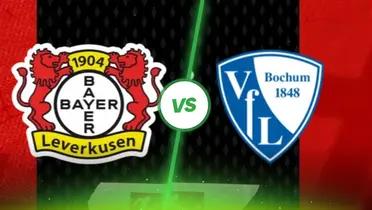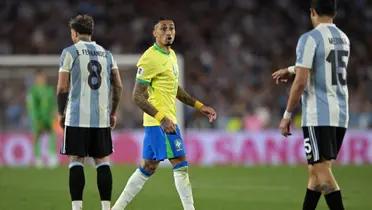Doping Allegations Rock Premier League: Top Player Under Investigation
The world's top league is investigating a player who reportedly tested positive for drug use.

A real scandal is about to break out in the Premier League as it has been leaked that Chelsea striker Mykhaylo Mudryk is being investigated for apparently testing positive in an anti-doping test, which if confirmed would cause a severe sanction that would leave him for a long time without playing.
The Problem of Doping in Football: An Ongoing Issue in the Sport
Doping in football is a topic that has raised serious concerns in recent years, as the pursuit of victory and the pressure to perform at the highest level has led some players to resort to substances that enhance their performance. While football is often celebrated for its physicality, skill, and global appeal, the issue of doping continues to taint the integrity of the sport. The use of performance-enhancing drugs (PEDs) not only threatens the health of the athletes but also undermines the fairness of competition, the principles of sportsmanship, and the credibility of football itself. In this article, we explore the ongoing challenges related to doping in football, including high-profile cases, the measures taken to combat it, and the broader implications of the issue.
What is Doping and Why is it a Problem in Football?
Doping refers to the use of prohibited substances or methods to improve athletic performance. In football, where stamina, speed, strength, and recovery are essential, players sometimes turn to substances such as steroids, stimulants, and blood doping to gain a competitive edge. These substances can artificially enhance an athlete’s endurance, muscle strength, or focus, allowing them to perform better than their natural abilities would allow.
The problem with doping in football is multi-faceted. Firstly, the health risks associated with using PEDs are considerable. Steroids, for instance, can lead to heart problems, liver damage, hormonal imbalances, and psychological issues. Stimulants, while boosting energy levels temporarily, can cause dehydration, anxiety, and cardiovascular stress. Additionally, blood doping, which involves manipulating red blood cell levels to increase oxygen delivery, can cause blood clots, strokes, or organ failure. These health risks are exacerbated by the intense physical demands that professional football already places on players.
Another significant issue is the violation of fairness. When a player uses doping to gain an advantage, they not only cheat their opponents but also distort the level playing field that sports are supposed to maintain. Football relies on natural skill, hard work, and discipline, and doping undermines these values. Fans and players alike expect the competition to be based on talent and effort, not artificial enhancements.
High-Profile Doping Cases in Football
While doping in football may not be as widespread or as publicized as in other sports like cycling or athletics, there have been notable cases that have put the issue in the spotlight. One of the most famous cases involved Diego Maradona, one of the sport's greatest players. In the 1994 FIFA World Cup, Maradona was sent home after testing positive for ephedrine, a stimulant that is banned by the World Anti-Doping Agency (WADA). This scandal shocked the world, as Maradona’s reputation as one of the best footballers in history was tainted by the positive test.
More recently, Adrian Mutu, the former Romanian striker, was banned for seven months in 2004 after testing positive for cocaine. Mutu’s case highlighted the issue of recreational drug use within football, which often goes unnoticed in the media but can have a serious impact on a player’s career.
Perhaps one of the most infamous cases in the modern era involved Samuel Eto'o, the Cameroonian footballer, who was accused of doping following a test in 2008 while playing for Inter Milan. Although the case was ultimately dismissed, it further fueled the discussion surrounding doping in football.
Additionally, there have been several incidents of players being caught for using performance-enhancing substances at the club level, with suspensions and fines being handed out as a result. These cases have sparked debates about the prevalence of doping in the sport and the effectiveness of testing procedures.
Anti-Doping Measures in Football
To combat doping, football’s governing bodies, such as FIFA, UEFA, and national federations, have implemented stringent testing procedures. These include random drug testing, which is often carried out during matches, training camps, and even during off-seasons. Players are required to submit blood and urine samples, which are then analyzed for banned substances by accredited laboratories. The World Anti-Doping Agency (WADA) also plays a significant role in setting the global anti-doping standards, ensuring that football adheres to the same guidelines as other major sports.
FIFA’s commitment to clean sport is reflected in its efforts to enforce the FIFA Anti-Doping Regulations, which align with WADA’s code. These regulations list the substances that are prohibited both in and out of competition, and players found guilty of doping face significant penalties, including suspensions, fines, and in some cases, lifetime bans. FIFA and UEFA also work with clubs to educate players on the dangers of doping and the importance of maintaining their health through natural means.
Despite these efforts, however, challenges remain. The sophistication of doping methods has increased, with new substances and techniques constantly emerging. In some cases, players may use substances that are harder to detect or find ways to avoid testing altogether. Additionally, some players may still be tempted to use performance-enhancing drugs due to the immense pressure to succeed and the financial rewards that come with being at the top of the sport.
The Broader Implications of Doping in Football
The problem of doping in football is not limited to the individual player or the clubs they represent. The broader implications of doping include damage to the sport’s credibility, loss of fan trust, and negative impacts on young players who may look up to their idols. When a player is caught doping, it sends a message to young footballers that success can be achieved through shortcuts rather than hard work and natural ability.
Moreover, doping scandals often overshadow the achievements of players who have succeeded without the aid of illegal substances. This is particularly concerning in a sport like football, where teamwork, dedication, and skill are paramount. The risk of creating a “win-at-all-costs” mentality can also harm the overall culture of the sport, turning it into one where winning is more important than fair play and sportsmanship.
Conclusion
Doping in football remains a significant issue, one that threatens both the health of players and the integrity of the sport. Although the measures taken by governing bodies like FIFA, UEFA, and WADA have made strides in curbing the use of performance-enhancing substances, the fight against doping is far from over. With the increasing sophistication of doping methods, football’s authorities must continue to evolve their testing procedures and educate players on the dangers of doping. As the sport moves forward, it is crucial to uphold the values of fair play, integrity, and respect, ensuring that football remains a celebration of talent and hard work rather than a battleground for those looking to cheat their way to success.
More news

The shocking revelation from Dibu Martinez before playing the World Cup final against France
29/03/2025

Europe stunned: Enzo Fernandez's final decision to join Atletico Madrid
28/03/2025

Guardiola will drop him from Manchester City: Claudio Echeverri's possible destination
28/03/2025

Summary and Goals | Bayer Leverkusen 3-1 Bochum: Matchday 27 of the BUNDESLIGA Full-Time
28/03/2025

Following in Julian Alvarez's Footsteps: Pep Guardiola doesn't want him and he will leave Manchester City
28/03/2025

Bayer Leverkusen vs Bochum: How to watch the match, possible lineups, and predictions
28/03/2025

World exclusive: Spain wants to pair Thiago Messi and Cristiano Ronaldo Jr
28/03/2025

Dibu Martínez's shocking promise if he becomes World Champion again with Argentina
27/03/2025

The Multimillion-Dollar figure Kylian Mbappe lost for not renewing with PSG
27/03/2025

The most controversial moments | Barcelona 3-0 Osasuna: Matchday 27 of the LALIGA EA SPORTS Full-Time
27/03/2025

Emiliano Martinez breaks silence before returning to France to face PSG
27/03/2025

What Time and Where to Watch Barcelona vs. Osasuna? LaLiga Matchday 27 | Barcelona Seeks a Big Win
27/03/2025

Where to watch Barcelona vs. Wolfsburg live in the second leg of the Women's Champions League quarterfinals
27/03/2025

While Lionel Messi earns $12.5 million, the salary Inter Miami must offer Cristiano Ronaldo
27/03/2025

Messi and Cristiano together: Inter Miami's ambitious plan that could revolutionize football
27/03/2025

The Brazilian press targets Raphinha after Argentina's crushing blow
26/03/2025

The bad news Bayern Munich received ahead of the Club World Cup
26/03/2025

Dibu Martínez sends a fiery message to Raphinha after Argentina's 4-1 Victory Over Brazil
26/03/2025



